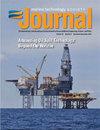“SeaWARRDD”: Coastal Warning and Rapid Response Data Density: Rethinking Coastal Ocean Observing, Intelligence, Resilience, and Prediction
IF 0.7
4区 工程技术
Q4 ENGINEERING, OCEAN
引用次数: 0
Abstract
Abstract Florida has a rich coastal and offshore biodiversity and ecology, and its low-lying geography with three dynamic coastlines is unique in many respects. Millions of people are attracted to visit, live, and work in the region. The same unique qualities make Florida highly exposed to impact-weather events, climate change, sea level rise, and environmental interference from exploding population growth over the last few decades. Environmental conditions must be monitored, baselines formed, and advanced circulation and ecosystem models created and verified (in-situ). The SeaWARRDD team discusses the proposed implementation of a comprehensive “Florida Coastal Ocean Observing System” beginning with a pilot study along the inner-West Florida Shelf. Our SeaWARRDD team brings decades of experience to the ocean-observing community, from the federal, state, academic, and private sectors including designing, developing, installing, and maintaining ocean (bay and estuary) monitoring and data collection systems. The SeaWARRDDobserving technologies are described in their application to monitor impact-weather, the structure of water-column density (conductivity, temperature, depth/ocean heat content), water-quality parameters, harmful algal blooms, acidification, and met-ocean physical components. Also discussed is the engagement with new ocean technologies and artificial intelligence, machine learning, and neural networks as they progress from concept, to prototype, and onto operational status. SeaWARRDD takes ocean-data processing to higher levels within the observing community and opens new avenues to provide both direct and indirect benefits to the millions of people who live along the Florida coast.“SeaWARRDD”:海岸预警和快速反应数据密度:重新思考海岸海洋观测、智能、弹性和预测
摘要佛罗里达州拥有丰富的海岸和近海生物多样性和生态,其具有三条动态海岸线的低洼地理在许多方面都是独特的。数以百万计的人被吸引到该地区旅游、生活和工作。同样的独特品质使佛罗里达州在过去几十年中高度暴露于天气事件、气候变化、海平面上升以及人口激增对环境的干扰。必须监测环境条件,形成基线,并创建和验证先进的环流和生态系统模型(现场)。SeaWARRDD团队讨论了全面的“佛罗里达海岸海洋观测系统”的拟议实施,从西佛罗里达大陆架内部的试点研究开始。我们的SeaWARRDD团队为联邦、州、学术和私营部门的海洋观测界带来了数十年的经验,包括设计、开发、安装和维护海洋(海湾和河口)监测和数据收集系统。SeaWARRDDobserving技术在监测影响天气、水柱密度结构(电导率、温度、深度/海洋热含量)、水质参数、有害藻华、酸化和满足海洋物理成分方面的应用进行了描述。还讨论了新海洋技术、人工智能、机器学习和神经网络从概念到原型再到运行状态的参与。SeaWARRDD将海洋数据处理提升到观测社区的更高水平,并开辟了新的途径,为居住在佛罗里达海岸的数百万人提供直接和间接的利益。
本文章由计算机程序翻译,如有差异,请以英文原文为准。
求助全文
约1分钟内获得全文
求助全文
来源期刊

Marine Technology Society Journal
工程技术-工程:大洋
CiteScore
1.70
自引率
0.00%
发文量
83
审稿时长
3 months
期刊介绍:
The Marine Technology Society Journal is the flagship publication of the Marine Technology Society. It publishes the highest caliber, peer-reviewed papers, six times a year, on subjects of interest to the society: marine technology, ocean science, marine policy, and education.
 求助内容:
求助内容: 应助结果提醒方式:
应助结果提醒方式:


